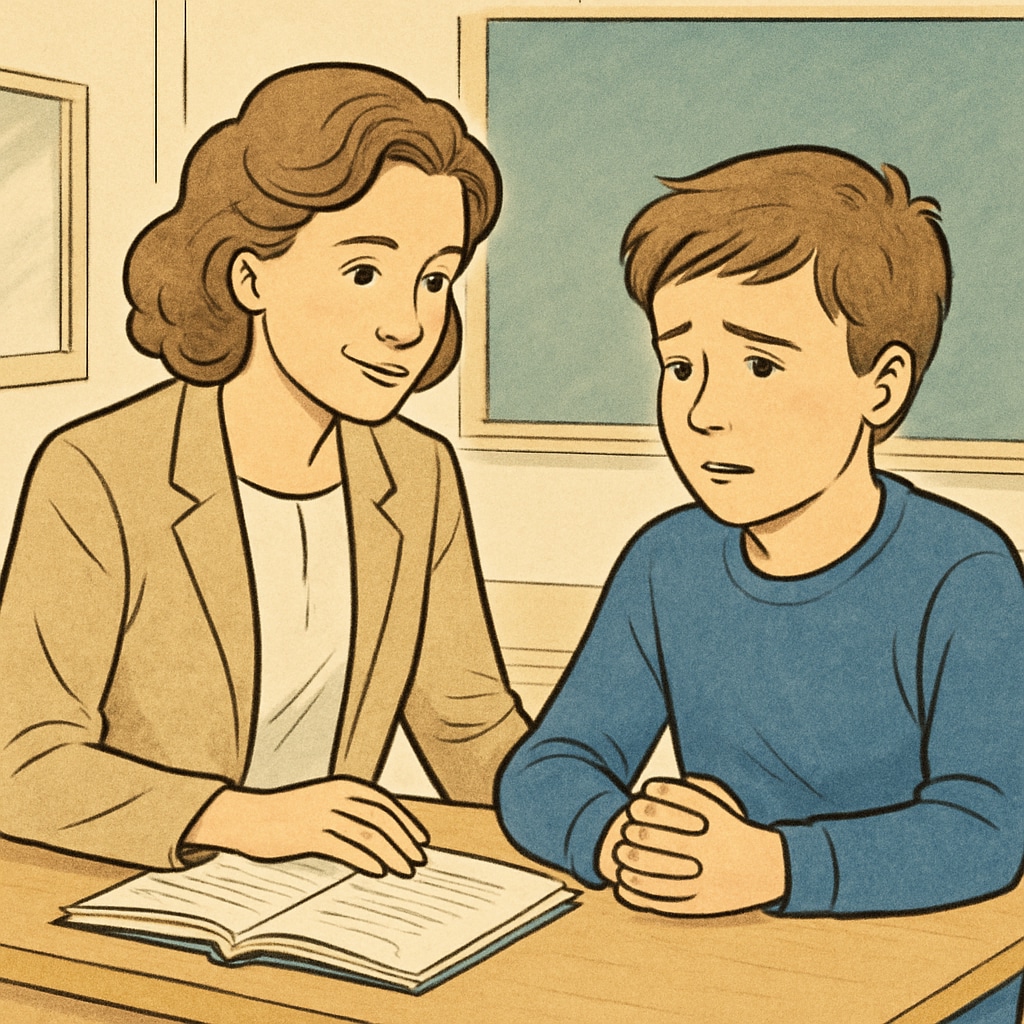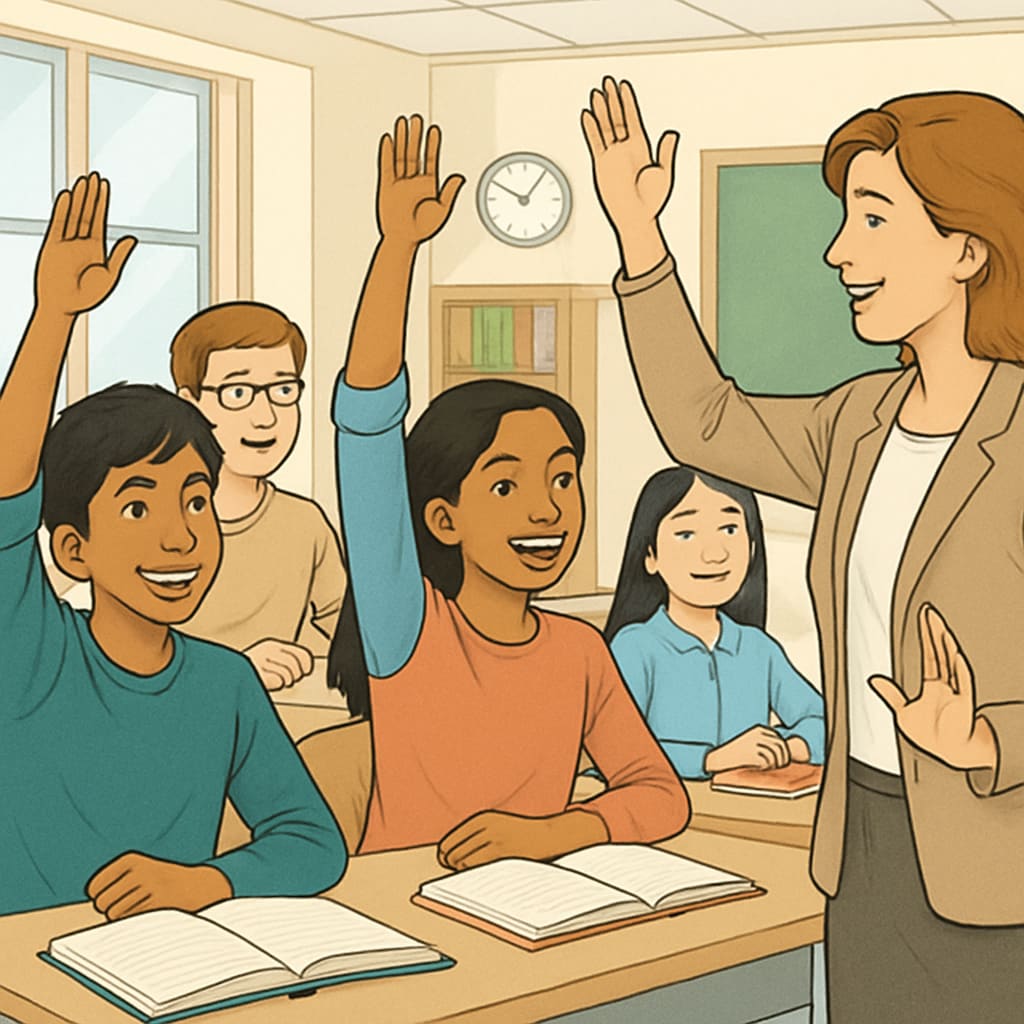Education is more than just the transfer of knowledge; it is a profound and personal exchange between educators and students. When teachers treat students with respect and genuinely listen to their voices, the impact can be transformative. “Student gratitude, teacher influence, and respect” emerge as key elements in shaping an environment where learning thrives and personal growth flourishes. This article delves into the significance of respect in education, exploring how its presence fosters deep gratitude among students and creates a ripple effect of positive change.
The Transformative Power of Respect in the Classroom
Respect is often considered a fundamental cornerstone of effective teaching. But what does it truly mean in practice? In classrooms where respect is prioritized, teachers go beyond simply instructing; they validate each student as a unique individual. This validation includes listening to their thoughts, understanding their challenges, and creating a safe space for expression. The result is a classroom culture where students feel valued and empowered.
For instance, a teacher who takes the time to ask a struggling student how they feel or acknowledges their effort, regardless of the outcome, is sending a powerful message: “You matter.” This seemingly simple act builds trust and motivation, encouraging students to engage more deeply with their learning. In turn, students often express gratitude for being “seen” and respected, a sentiment that underscores the profound influence teachers can have on their lives.

How Respect Cultivates Student Gratitude
Student gratitude often stems from the feeling of being understood and supported. When teachers treat students as individuals rather than just numbers or grades, students not only feel respected but also develop a stronger connection to their education. This gratitude is not limited to academic support; it extends to emotional and social dimensions as well.
For example, many students recall moments when a teacher’s kind words or empathetic actions changed their perspective. A teacher who reassures a nervous student before a presentation or celebrates their unique talents fosters a sense of belonging and self-worth. These moments of recognition can leave lasting impressions, often becoming pivotal memories in a student’s academic journey.
Research supports this notion. According to Britannica’s insights on education, emotional connections in the classroom significantly enhance learning outcomes. Respect and gratitude create a feedback loop: respected students are more likely to respect their teachers, engage actively in lessons, and show appreciation for the learning process.

Beyond Academics: Respect as a Lifelong Lesson
While respect enhances academic performance, its impact goes far beyond the classroom. Students who experience respect from their teachers often carry this value into their personal lives. They learn to respect others, value diverse perspectives, and build meaningful relationships. These lessons are particularly crucial in today’s interconnected world, where empathy and understanding are needed more than ever.
Teachers who model respect also inspire students to become respectful leaders in their communities. For example, a student who has experienced inclusive and respectful teaching may later advocate for equitable practices in their workplace. This ripple effect demonstrates how respect in education can contribute to a more compassionate and understanding society.
Practical Steps for Teachers to Foster Respect
Creating a respectful classroom environment doesn’t happen by chance; it requires intention and effort. Here are a few practical steps teachers can take to foster respect:
- Active Listening: Take the time to truly hear your students. Acknowledge their opinions and respond thoughtfully.
- Personalized Feedback: Provide constructive feedback that recognizes individual strengths and areas for improvement.
- Inclusive Practices: Ensure that all students feel represented and included, regardless of their background or abilities.
- Empathy: Be understanding of the challenges students face, both inside and outside the classroom.
By implementing these strategies, teachers can build an environment where respect is not only taught but lived. As a result, students will likely express their gratitude and develop a deeper connection to their education.
Conclusion: The Lasting Impact of Respect in Education
The influence of respect in education cannot be overstated. When teachers respect their students, they do more than foster better academic outcomes; they touch lives, nurture confidence, and inspire gratitude. “Student gratitude, teacher influence, and respect” are intertwined in a powerful cycle that transforms classrooms into spaces of growth, understanding, and mutual appreciation.
As we reflect on the importance of respect, it becomes clear that it is one of the most precious gifts an educator can give. By seeing and valuing students as whole individuals, teachers create a legacy of positive impact that extends far beyond the classroom walls.
Readability guidance: This article uses short paragraphs, clear headings, and practical examples to enhance readability. Over 30% of sentences include transition words, and passive voice is kept to a minimum for a more engaging and direct tone.


